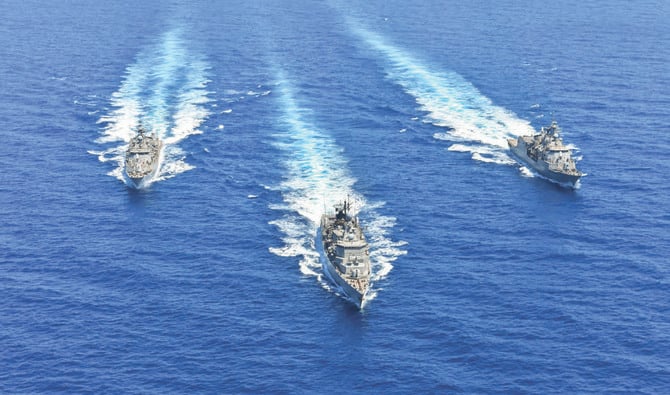« Tavernas along the beachfront are closing for the winter months. Staff stack chairs and fold red and white checkered tablecloths. It’s the end of the tourist season on the Greek island of Astypalaia. ‘This place is so peaceful right now,’ says Christina Koutsolioutsou, a local artist, ‘but we can’t help but think about what would happen if the worst comes to the worst’ » reports Gabriel Gavin in The Spectator.
The Greek military is on high alert. They’re worried that Turkey, just 50 miles across the Aegean Sea, could launch an invasion. There have been months of rising tensions. Astypalaia and dozens of nearby islands are at the center of the dispute.
War between the two nations feels close. President Recep Tayyip Erdogan last month accused Greece of ‘occupying’ the Aegean islands. They were in fact given to Greece by Italy as part of the Paris Peace Treaties after world war two. Erdogan also insists that Athens is stationing troops on the islands, breaking treaties signed almost a century ago that make them a demilitarised zone. ‘We can come suddenly, in the middle of the night,’ he said. ‘If you Greeks go too far then the price will be heavy.’
It’s not just words. Greece says that Turkish warplanes and drones violated its airspace 110 times in a single day in September. Of the 16 fighter jets spotted by Greek air defences, four were reportedly armed. Turkey’s Foreign Minister insisted they would decide ‘when and where we will go.’
Turkey, meanwhile, said Greece locked on to one of its jets with a surface-to-air missile as it flew through international airspace. Local Turkish media accuses Greek pilots of ‘harassing’ their pilots in the Aegean. The United States has told both sides to ‘resolve their differences diplomatically’, but neither are listening.
At the same time, a rift has opened between Turkey and US because Erdogan won’t impose sanctions on Russia. And while the Turkish President has positioned himself as a mediator between Kyiv and the Kremlin, and supplied Bayraktar TB-2 attack drones to Ukrainian forces, Erdogan has done deals to increase the amount of cheap Russian energy flowing into the country. Turkey has also agreed to buy Russia’s S-400 air defence rockets, and, in a turn against the western nations that are supposed to be their allies, sounded alarms about closer ties between Greece and the US and France, going as far as accusing them of building ‘a bilateral military alliance against Turkey.’ According to them, American-made hardware is building up on the Aegean islands, threatening Turkey’s borders.
‘The idea of conflict between Turkey and Greece seems far-fetched – both are Nato members and Greece is in the EU,’ says Lisel Hintz, a Professor of Eurasian Studies at Johns Hopkins University. But so does the idea that a Nato member would be buying weapons from Russia. ‘There are red lines, but they do get crossed time and time again.’
According to Hintz, the standoff is good for Erdogan’s domestic political purposes. It creates a narrative that the country is under attack just months before he is due to face a tough re-election battle against a bad economic backdrop. With Erdogan’s polling numbers cratering, stirring up conflict with a historical rival could be a way of winning over hardliners and reiterating that Turkey needs strong leadership.
None of that though, Hintz warns, means the risks are overblown. ‘Through this bellicose rhetoric and the harassing of fighter jets, accidents can happen and countries can get into conflicts that neither actually wants,’ she explains. ‘So it’s not unthinkable there could be a real crisis.’
The rift between the Greece and Turkey comes at the worst possible time for the Nato, with the US and UK pushing to keep a united front against Putin. On the streets of Istanbul, pressure groups have put up banners calling for a withdrawal from the military bloc, while many ordinary Turkish people think that the West wants to see the country weakened and broken up.
An emboldened Erdogan might be content with whipping up tensions to get his voters out but, as very recent history shows, the road to war is paved with miscalculations.
The Spectator, November 6, 2022, Gabriel Gavin

